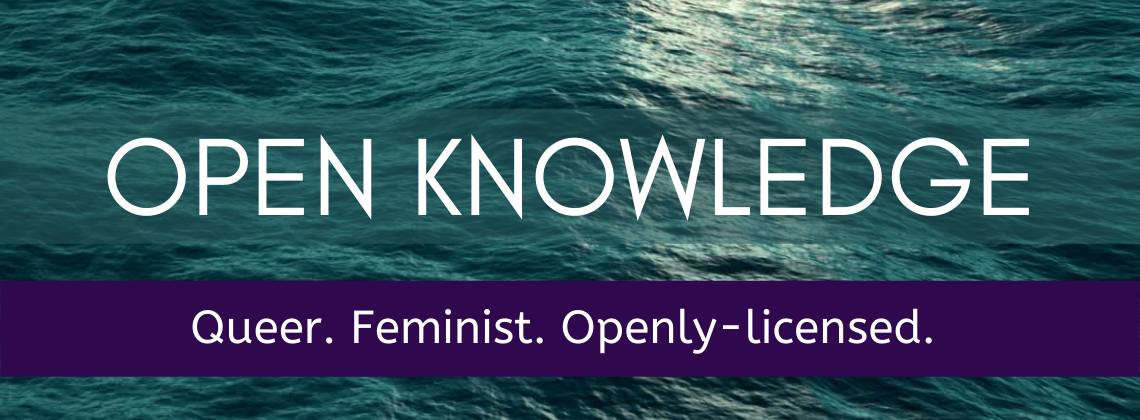- My key texts and my theoretical framework(s): Broadly, my theoretical commitments are situated in cultural studies, with specific investments in Black and women of color feminisms and queer of color critique. In these traditions, felt experience is honored for its political implications. Feelings are “loaded with information and energy” (Lorde, 1981, p. 280): they facilitate the reproduction of oppression, and they animate and sustain transformative political action. In designing my specific conceptual framework, I draw heavily on Feeling Power: Emotions and Education by Megan Boler (1999); The Cultural Politics of Emotion by Sara Ahmed (2004); Cruel Optimism by Lauren Berlant (2011); The Biopolitics of Feeling: Race, Sex, and Science in the Nineteenth Century by Kyla Schuller (2018); and Disaffection: The Cultural Politics of Unfeeling in Nineteenth-Century America by Xine Yao (2021). Each text contributes to my understanding of feelings not as individual dispositions but as a set of relations that emerge from and are produced through specific cultural legacies. Feelings are thus a rich source of information about our (often implicit) attachments to, or detachments from, particular ideologies or structures. As an educational researcher, I am especially interested in the feelings that emerge between youth and adults in traditional school contexts and in intentionally collaborative, equitable intergenerational spaces. Using my framework, I explore the ideological investments and cultural assumptions that are subtly reproduced or disrupted in these spaces.
- My position as a researcher is: (past work, subjectivity, etc.) As a former high school English teacher, I know well that the material realities of survival in under-resourced schools often demand that teachers and students discard horizons of possibility and invest in an emaciated version of education that emphasizes achievement and control. In graduate school, however, I have had the time and space to reflect on the attachments and assumptions that dictated much of my teaching practice. In particular, I have considered more deeply how much of my teaching involved an attachment to the reproduction of racial capitalism and white supremacy. Indeed, narratives of teaching as a caring profession in which practitioners make the world a better place, have been leveraged to justify the exploitation of teachers, especially women and femmes, and to legitimize the violent processes of colonial schooling that dehumanize and criminalize poor Black and Brown youth. At the same time, I have a longstanding interest in youth activism, youth participatory action research (YPAR), and teacher activism, working alongside youth and adults to understand the conditions that facilitate activist identities and generate educational transformation. Now, as a teacher educator, I am interested in leveraging teacher preparation programs to provide space and time for future and practicing teachers to reflect on their own attachments, to collaborate with young people, and to cultivate their capacities for intergenerational educational activism.
- This project matters to me and may matter to some others because: there is a rift between what is possible in education–what configurations of collective learning for liberation can be imagined and enacted–and what feels possible or desirable within and as a result of racial capitalist-settler schooling in the United States. As the ongoing pandemic intensifies the strain on schools serving poor Black and Brown students, and as draconian state policies constrain and censor curriculum and pedagogy in K-12 classrooms, teacher preparation programs are uniquely situated to provide alternative contexts to the increasingly narrow imaginaries offered by and within schools. My dissertation study examines one such alternative context, as I investigate a series of collaborations between early-career English teachers from a graduate education class and youth researchers from a dual-enrollment YPAR class. Drawing on field notes, artifactual analysis of class work, and individual interviews, I examine the stories that youth and adult participants tell about their experiences in schools and in the collaborative context, surfacing the feelings about teaching and learning expressed therein, and examine these feelings in light of cultural histories of schooling. I am particularly interested in the extent to which collaborative intergenerational experiences that emphasize scholar-activism transform or reinforce dominant conceptions of what youth and adults feel is possible or desirable in educational contexts.
- My research question is: How do youth and adult participants experience and interpret the collaborative intergenerational encounters, in light of their past, present, and anticipated future schooling experiences?



WHOA, THIS IS VERY GOOD. *deletes everything and starts again*
How are you presenting your findings? Media? Web? Plus paper? This is fascinating.
What Rocio said.
(erasing, starting over again, dictionary open.)